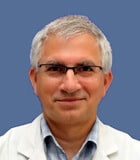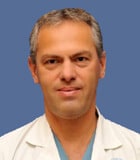Urology in Israel
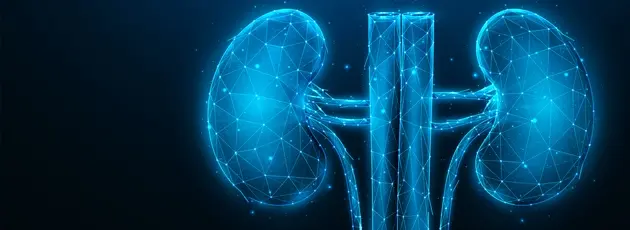
Professor Haim Matzkin heads the Department of Urology. The Ichilov Hospital department employs 11 urologists, including 6 professors. This is the most advanced department of urology in Israel. It is equipped with the latest model of the “Da Vinci” robotic surgical system, Da Vinci Xi.
The department comprises several clinics:
- Male reproductive health;
- Endoscopic urology;
- Urologic oncology;
- Robotic urologic surgery, etc.
According to the statistics, 50% of men older than 50 years are diagnosed with benign prostatic hyperplasia (BPH), about 307,000 people all over the world annually die of prostate cancer, and 10% of the population suffer from chronic kidney disease. In Israel, these diseases are treated with robot-assisted and minimally invasive surgery, as well as laser technologies.
WHAT UROLOGIC CONDITIONS ARE TREATED IN TOP ICHILOV?
| Azoospermia | Balanoposthitis |
| Benign prostatic hyperplasia | Bladder polyps |
| Cystitis | Enuresis |
| Epididymitis | Epididymal cyst |
| Erectile dysfunction | Kidney stones |
| Hydronephrosis | Hypospadias |
| Male infertility | Neurogenic bladder |
| Orchitis | Peyronie’s disease |
| Penile curvature | Pyelonephritis |
| Prostatitis | Phimosis |
| Varicocele | Vesiculitis |
| Urinary incontinence | Urethral polyps |
| Urethral stricture | Urethritis |
LEADING UROLOGISTS IN ISRAEL
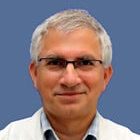
Professor Haim Matzkin – highly qualified urologist, heads the Department of Urology and coordinates its practice. Was one of the first to use brachytherapy for prostate cancer in Israel. Author of over 160 scientific publications. Was included into the list of the best Israeli urologists in 2019 according to the “Forbes” magazine.

Doctor Meyer David Gershbaum, specialist in minimally invasive urologic surgery and the use of the “Da Vinci” robot. Performed robot-assisted surgery in the leading USA clinics for many years.

Professor Nicola Mabjeesh, Head of the Urologic Oncology Clinic, leading specialist in minimally invasive surgery, operates on the prostate and other organs of the urogenital system. Work experience: over 25 years.

Doctor Gal Keren-Paz, urologic surgeon, specialist in endoscopic and robotic urologic surgery. Worked in the Memorial Sloan Kettering Cancer Center (USA).

Professor Jacob Ben-Chaim, urologic surgeon, work experience: about 40 years. Has been Head of the Pediatric Urology Department for 20 years. Lecturer at the Tel Aviv University Department of Urology.

Professor Mario Sofer, Head of the Kidney Stone Diagnosis and Treatment Clinic. Was included into the list of the best Israeli physicians compiled by the “Forbes” magazine in 2019. Worked in the leading urology clinics in the USA and Canada.

Professor Yuza Hen, urologist-andrologist, sexual health specialist with over 40 years of work experience, head of erectile dysfunction treatment clinic. Winner of Israel Association of Urology and Israeli Society for Sexual Medicine awards.
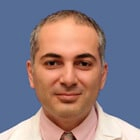
Doctor Avi Beri, specialist in endoscopic urology, work experience: about 20 years. Lecturer at the Tel Aviv University Department of Urology.

Doctor Leon Agulyansky, urologic surgeon with over 35 years of work experience. Author of 2 monographs and a popular science book on prostate conditions. Has patents for inventions in urology.
ADVANCED METHODS OF DIAGNOSIS AND TREATMENT IMPLEMENTED IN ISRAEL IN 2024
- 4KSCORE Blood Test to Detect Prostate Cancer
Up until now, the decision to order prostate biopsy has been based primarily on the results of a PSA blood test. This test is not highly specific and does not assess the risk of aggressive cancer development. This is why PSA blood tests lead to the unjustified, traumatizing surgical procedure: prostate biopsy.
The 4KSCORE blood test allows to assess the risk of aggressive prostate cancer development in patients with a high PSA level. The test detects the levels of 4 biomarkers: tPSA, fPSA, iPSA, ans hK2. When interpreting the results, doctors consider the patient’s age and other factors. If the results show no risk of aggressive tumor development, prostate biopsy is not recommended.
According to clinical trials, this test reduced the number of biopsies for suspected prostate cancer by 65%.

- Ultrasound- and MRI-guided Fusion Biopsy of the Prostate
The conventional prostate biopsy is ultrasound-guided. Its accuracy amounts to about 75%. The new biopsy method uses not only ultrasound, but also MRI scans. The image created by MRI is combined with the ultrasound results (hence the name of the procedure: “Fusion”). This allows the doctor to receive a 3D prostate scan and take tissue samples even from the most hard-to-reach parts of the gland.
The method allows taking 18 or more samples. The diagnostic accuracy of the study is thus increased to 95%. The procedure requires general anesthesia and 1-day hospitalization. There is significantly less pain after the procedure in comparison with conventional prostate biopsy.
- The Butterfly Stent in the Benign Prostatic Hyperplasia Treatment
Benign prostatic hyperplasia is traditionally treated with either medication or surgery. Benign prostatic hyperplasia medications have severe side effects and may not help the patient. Conventional surgery, the transurethral resection of the prostate, requires general anesthesia and about 1 month of post-operative rehabilitation.
Israeli specialists have developed an alternative to surgery: a butterfly-shaped stent is implanted beneath the lining of the prostate. It slightly lifts the lobes of the prostate and improves urination. The procedure takes only 10 minutes and is done on the outpatient basis. After the procedure, the patient immediately returns to his everyday activities. The experts use the IPSS (International Prostate Symptom Score) and point out that the patients’ symptoms have improved significantly after treatment with this device.
SURGERY IN THE TOP ICHILOV CLINIC’S DEPARTMENT OF UROLOGY
- Laparoscopy
Israeli urologists prefer laparoscopic procedures to open surgery. These surgical interventions are performed through 3-4 punctures in the skin of the abdomen. The diameter of each opening is less than 2cm. The doctor inserts tube-like devices (trocars) into the openings and operates with special tools.
According to the studies, these procedures have several advantages in comparison with open surgery:
- Lesser blood loss;
- Low complication risk;
- Faster recovery.
In the Top Ichilov Clinic’s Department of Urology, laparoscopic techniques are mainly used in:
- Radical prostatectomy – complete prostate removal in cancer patients;
- Radical and partial nephrectomy – removal of a kidney or a part of the kidney;
- Kidney cyst treatment.
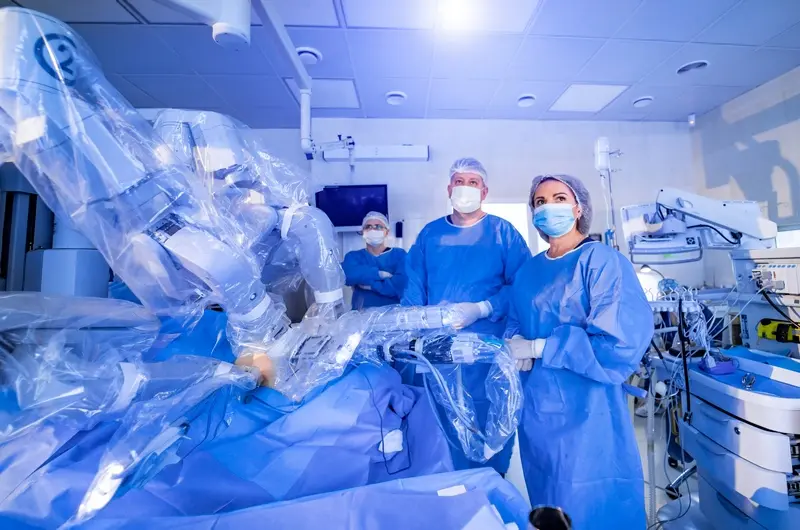
- Robot-Assisted Surgery
The Department of Urology offers surgery with the latest “Da Vinci” surgical robot, Da Vinci Xi. Robot-assisted procedures are laparoscopic. Higher precision sets them apart from regular laparoscopic surgery. Studies show that robotic procedures promote faster recovery of the sexual function and normal urination.
The Da Vinci Xi robotic system is mainly used for prostate removal in cancer patients. For the last 5-6 years, Israeli specialists have also been using it to operate on kidneys.
- Transurethral Surgery
These surgical interventions are performed through the urinary tract (urethra) without external incisions. After surgery, the patient stays in the hospital only for 1 day. In a few days, he returns to his work and everyday activities. Transurethral surgery is the most advanced and promising subspecialty in urology. All the Top Ichilov urologic surgeons have mastered this technique.
Common indications for transurethral resection (TUR):
- Benign prostatic hyperplasia;
- Bladder tumors (benign and malignant);
- Urethral strictures (abnormal narrowing);
- Ureteral and renal pelvis stones and tumors.
TOP ICHILOV DEPARTMENT OF UROLOGY VIRTUAL TOUR
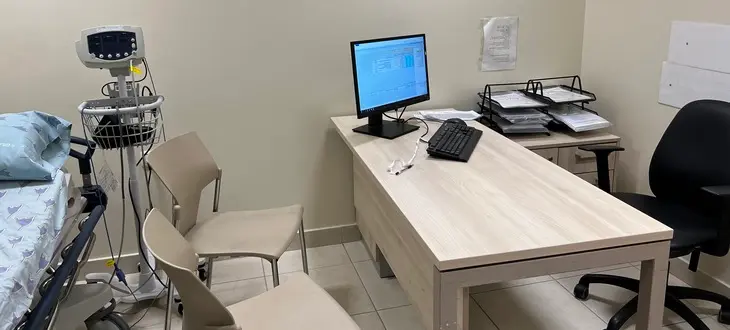
The diagnosis begins with the examination by a urologist. Since the doctors’ offices are fitted with state-of-the-art equipment, examination usually involves transrectal ultrasound.
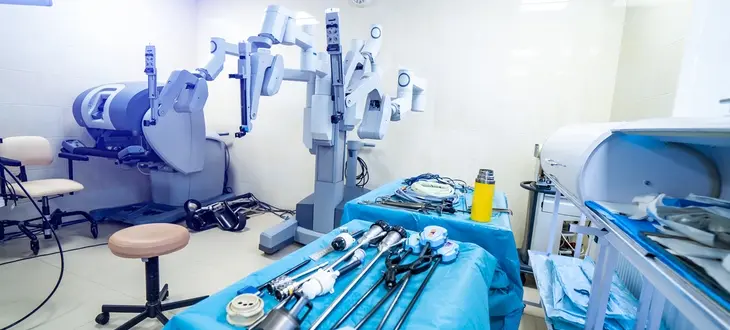
This is Da Vinci Xi, the most advanced surgical robot in the world. Its movements are much more precise than the movements of a person. The physician sits at a special console and controls the robot.
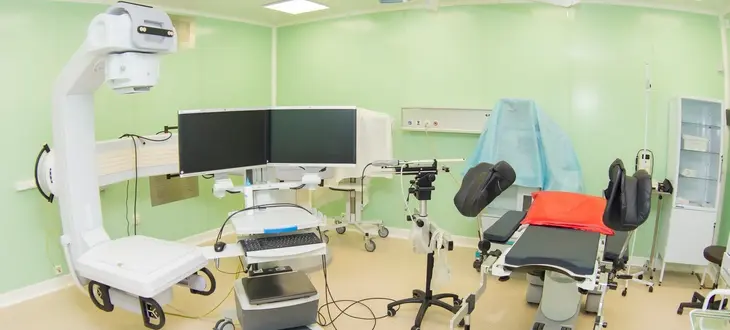
Our surgeons perform a transurethral resection. State-of-the-art equipment provides a magnified view of the surgical site on a computer screen.
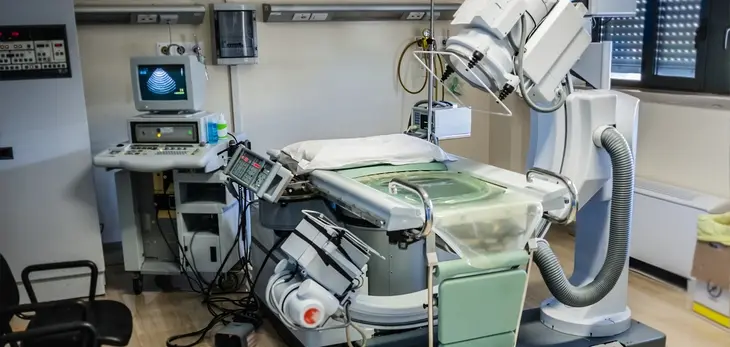
A modern doctor does not need a scalpel to remove kidney stones. In the photo, you can see distant lithotripsy, or shattering of the kidney stones with a shock wave.
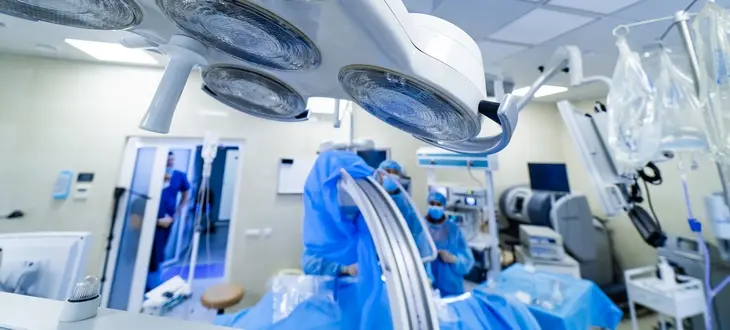
Intravesical bladder cancer therapy with the BCG vaccine is a unique treatment method used in our department. It reduces the risk of cancer recurrence by 75%.
How To Receive Urological Disorders Treatment In Top Ichilov
- Call the clinic right now: +972-37621629
- Or fill in the form below. Our doctor will contact you within 2 hours.

Publication Date:












